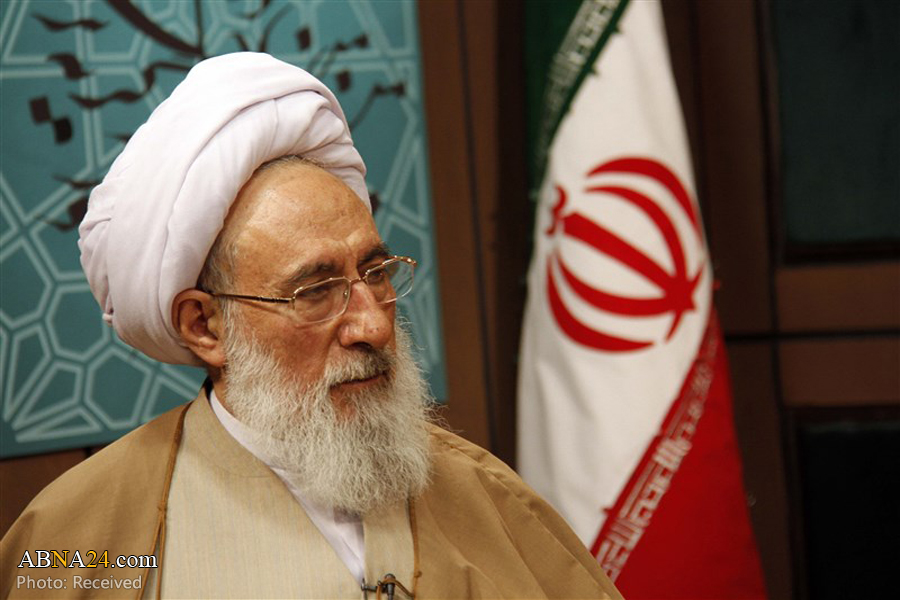Senior Shia cleric doubtful Iran would ratify FATF conventions
A senior Iranian cleric sitting on the Expediency Council, the body in charge of settling legislative disputes in the country, says he is doubtful the body would eventually endorse requirements of the FATF money-laundering watchdog over fears that they may undermine the country’s financial independence.
A senior Iranian cleric sitting on the Expediency Council, the body in charge of settling legislative disputes in the country, says he is doubtful the body would eventually endorse requirements of the FATF money-laundering watchdog over fears that they may undermine the country’s financial independence.
Ayatollah Mohsen Mojtahed Shabestari said on Tuesday that a renewed debate in the Expediency Council on the Financial Action Task Force’s Palermo and terrorist financing conventions would not necessarily mean there would be a change in the Council’s position on the issue.
“I have already expressed my opinion and I have insisted that my position would not change and I don’t think the opinion of other members has changed on the issue,” Shabestari told the semi-official Mher News agency.
The comments came a week after officials in the administrative government of President Hassan Rouhani said the Leader of the Islamic Revolution Ayatollah Seyyed Ali Khamenei had agreed to recommend a renewed debate in the Expediency Council to examine the FATF conventions.
Rouhani’s government insists that Iran’s continued inclusion in an FATF blacklist would hurt the country’s trade and economic relations with neighboring countries as well as with major allies like China and Russia.
Ayatollah Shabestari, a former representative of the Leader in northwestern Iran, said that accepting FATF conventions would do more harm than good to Iran, saying, however, that bills meant to ratify the conventions may finally pass through the Expediency Council with a slim majority of votes.
“It is difficult to foresee what would be the final outcome on FATF bills ... I am not able to predict their fate,” said the cleric.
A senior Iranian cleric sitting on the Expediency Council, the body in charge of settling legislative disputes in the country, says he is doubtful the body would eventually endorse requirements of the FATF money-laundering watchdog over fears that they may undermine the country’s financial independence.
A senior Iranian cleric sitting on the Expediency Council, the body in charge of settling legislative disputes in the country, says he is doubtful the body would eventually endorse requirements of the FATF money-laundering watchdog over fears that they may undermine the country’s financial independence.
Ayatollah Mohsen Mojtahed Shabestari said on Tuesday that a renewed debate in the Expediency Council on the Financial Action Task Force’s Palermo and terrorist financing conventions would not necessarily mean there would be a change in the Council’s position on the issue.
“I have already expressed my opinion and I have insisted that my position would not change and I don’t think the opinion of other members has changed on the issue,” Shabestari told the semi-official Mher News agency.
The comments came a week after officials in the administrative government of President Hassan Rouhani said the Leader of the Islamic Revolution Ayatollah Seyyed Ali Khamenei had agreed to recommend a renewed debate in the Expediency Council to examine the FATF conventions.
Rouhani’s government insists that Iran’s continued inclusion in an FATF blacklist would hurt the country’s trade and economic relations with neighboring countries as well as with major allies like China and Russia.
Ayatollah Shabestari, a former representative of the Leader in northwestern Iran, said that accepting FATF conventions would do more harm than good to Iran, saying, however, that bills meant to ratify the conventions may finally pass through the Expediency Council with a slim majority of votes.
“It is difficult to foresee what would be the final outcome on FATF bills ... I am not able to predict their fate,” said the cleric.






